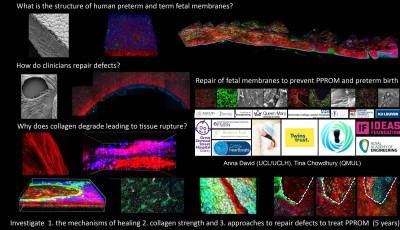News
Wellcome Trust Awards £1.8M to research link between climate change and preterm birth
1 February 2024

A team of scientists from the UK and Zimbabwe has received a £1.8 million grant from the Wellcome Trust, to investigate the impact of climate change on preterm birth rates. The funding comes as part of the prestigious Wellcome Climate Impact Award and will support a diverse group of experts, including climate scientists, bioengineers, epidemiologists, and obstetricians, as they work to understand how extreme heat affects pregnancy outcomes in Zimbabwe.
Rising temperatures and preterm birth
Preterm birth is a pressing health issue in Zimbabwe, where more than one in ten babies are born prematurely. Prematurity is also the leading cause of death among children under five. Despite this, few interventions are currently available to prevent preterm birth in the region. Led by Professor Andrew Prendergast, Director of the Zvitambo Institute for Maternal and Child Health Research, the project will explore the relationship between extreme heat caused by climate change and the risk of preterm birth in rural Zimbabwe.
Researchers from both Zimbabwe and the UK, including teams from across Queen Mary, will collect data from pregnant women in rural areas. This will involve the use of high-resolution sensors to measure temperature and humidity levels, along with biological samples to better understand how climate factors might affect pregnancy.
Investigating the causes of preterm birth
Bioengineering expert Dr Tina Chowdhury, from the School of Engineering and Materials Science in London, will lead efforts to explore how extreme heat may trigger inflammatory responses in the body that contribute to premature labour. Using advanced human models, her team will investigate how heat stress can damage the fetal membranes, potentially leading to their rupture and preterm birth.
Dr Chowdhury explains, "In London, we have access to a wealth of data on climate change, particularly in terms of air quality and temperature, but it's still unclear how this data relates to women at risk of preterm birth. By working with our partners in Zimbabwe, we hope to link population data with maternal health to identify key risk factors and discover pathways to prevent premature labour."
A new era of research in maternal health
This funding marks a significant step forward in understanding how climate change may be impacting pregnancy outcomes in developing countries. "We are thrilled to receive this Wellcome award," said Professor Prendergast. "Our work over the past decade has focused on improving child survival in Zimbabwe, and this grant will allow us to combine clinical data with environmental factors to gain a deeper understanding of the mechanisms driving preterm birth."
The team is now seeking a Postdoctoral Research Associate to join the project, with applications open until April 30, 2024.
This pioneering research could help identify vital intervention strategies to reduce preterm birth rates, not only in Zimbabwe but in other regions facing rising temperatures due to climate change.
| Contact: | Tina Chowdhury |
| Email: | t.chowdhury@qmul.ac.uk |
| Website: | |
| People: | Tina CHOWDHURY Stefaan VERBRUGGEN |
| Research Centre: | Bioengineering |




